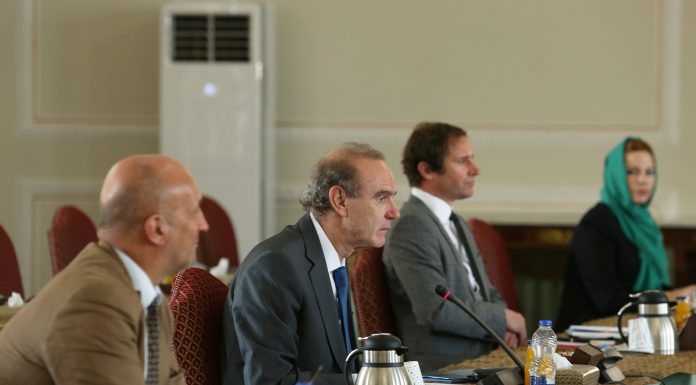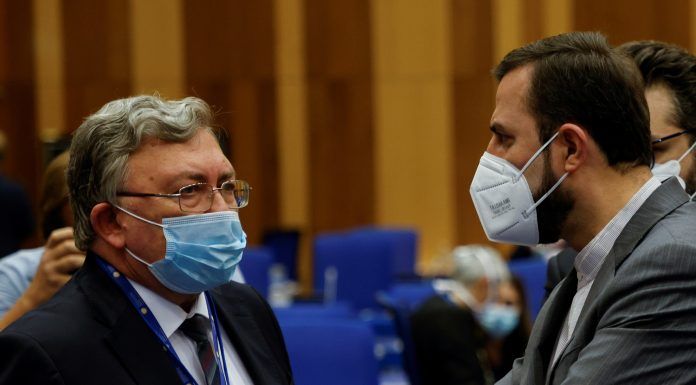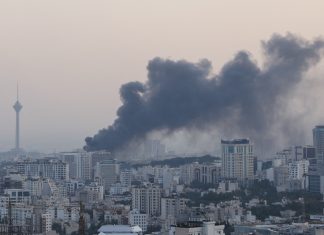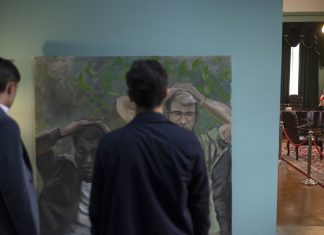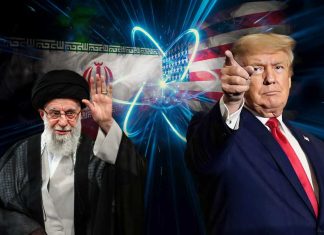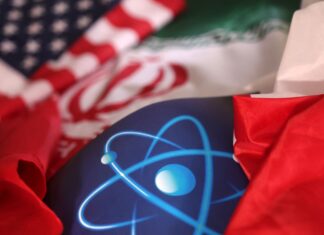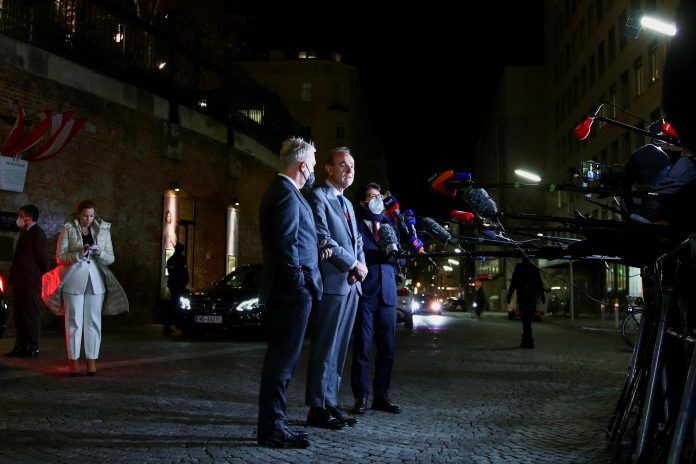
By Ahmad Rafat
The main parties in the talks to revive the 2015 Joint Comprehensive Plan of Action (JCPOA) — the Iran nuclear deal — will resume their negotiations in Vienna on Feb. 5.
After the last round of talks, delegations from France, Germany, Britain, China, Russia, the U.S., and Iran — the original signatories to the deal — returned to their respective countries to brief their governments on the state of the negotiations.
The U.S. unilaterally withdrew from the JCPOA in May 2018.
At the end of the last round of negotiations, Enrique Mora, the European Union’s representative at the Vienna talks, said the time had come for a political decision. Yet the delegations in Vienna cannot make any final decisions without consulting their respective governments first.
BRIEF- U.S. Sees Iran’s Nuclear Program as Too Advanced to Restore Key Goal of 2015 Pact – WSJ
Mr. Mora, who also coordinates the Vienna talks, is the Chief of Staff of Josep Borrell, the High Representative for the Common Foreign and Security Policy of the European Union.
Speaking to Kayhan Life on condition of anonymity, one of Mr. Mora’s advisors said: “In the closing days of the last meeting, Mikhail Ulyanov, Russia’s envoy to the Vienna nuclear talks, put forward a proposal after lengthy discussions with other parties, particularly Iran and the U.S.”
“While some people in Washington and Tehran have reportedly welcomed the proposal, others in both capitals have opposed it. Therefore, it was impossible for the representatives at the talks to make any definitive decision,” the diplomat explained. “Only senior officials in Tehran and Washington can break the deadlock. The Vienna talks can resume only after resolving the impasse.”
Saeed Khatibzadeh, the spokesperson for the Iranian Foreign Ministry, expressed similar concerns.
Speaking at a Jan. 31 press conference in Tehran, Mr. Khatibzadeh said: “We are waiting for Washington to make some political decisions and for the delegations to return to the negotiations with renewed resolve.”
At least three members of the U.S. nuclear negotiating team in Vienne, including Richard Nephew, reportedly resigned at the end of the last round of talks. Mr. Nephew, a senior member of the team, allegedly quit after disagreements with the lead U.S. negotiator at the Vienna talks: U.S. Special Representative for Iran Robert Malley.
Nephew is a nuclear weapons and sanctions expert and serves as a program director at the Center on Global Energy Policy (CGEP) at Columbia University. He was the Principal Deputy Coordinator for Sanctions Policy at the U.S. State Department in 2013.
Russia’s proposal to lift a large segment of the sanctions on Iran might have prompted Nephew’s resignation. There is no shortage of speculation on the matter, even though Russia’s proposal has not been published yet.
[aesop_image img=”https://kayhanlife.com/wp-content/uploads/2022/02/1_titre1_no-347.jpg” panorama=”off” credit=”Illustration/KL./” align=”center” lightbox=”off” captionsrc=”custom” captionposition=”left” revealfx=”off” overlay_revealfx=”off”]
A European diplomat told Kayhan Life that most of the sanctions reimposed on Iran after the 2018 U.S. withdrawal from the JCPOA — especially those preventing the country from selling its oil — could be lifted immediately. The proposal does not demand Iran to comply with the articles of the 2015 JCPOA while sanctions are being lifted.
According to rumors circulating at Vienna’s Palais Coborg hotel, where the nuclear talks are held, Iran will — in exchange for extensive sanctions relief and the release of a substantial amount of its frozen assets — immediately stop enriching uranium to 60 percent. It will also hand over its uranium stockpile with a high percentage of enrichment to a third country, most likely Russia.
Under the existing proposal, which differs significantly from the 2015 agreement, Iran will shut down its new generation of IR-6 centrifuges. They will be stored in a secure facility and monitored by the UN nuclear watchdog, the International Atomic Energy Agency (IAEA). However, Iran can continue enriching uranium to 20 percent.
Iran Moves Centrifuge-Parts Production Out of Disputed Workshop, IAEA Says
Under the new proposal, Tehran is to drop several key demands set as preconditions to the talks by the new Iranian government. They include guarantees that the U.S. will not withdraw from the JCPOA again; the lifting of all sanctions, even those related to Iran’s human rights violations and the “terrorist” activities of the Islamic Revolutionary Guards Corps (IRGC); and compensation for financial losses which the country suffered after the reimposition of sanctions in 2018.
Concerns over the new Russian proposal in the U.S. are not limited to disagreements between Democrats and Republicans. Many in the Democratic party and inside the government of President Joe Biden strongly oppose an immediate lifting of sanctions and an easing of pressure on Iran.
“We cannot allow Iran to threaten us into a bad deal or an interim agreement that allows it to continue building its nuclear capacity,” Senator Robert Menendez, a Democrat from New Jersey and the chairperson of the Senate Foreign Relations Committee, said on Feb. 1. “I was so concerned over the JCPOA framework of leaving the vast majority of Iran’s nuclear program intact.”
“We cannot ignore Iran’s nefarious support for terrorism or accept threats to American interests and lives. We must welcome legitimate and verifiably peaceful uses of nuclear power, but remain true to our nonproliferation principles and our unyielding desire to build a more stable, safer, prosperous world for the American people and all peace-loving people to thrive. To do so, Iran cannot and must not possess a nuclear weapon,” Senator Menendez argued.
“I’m calling on the Biden administration and our international partners to exert more pressure on Iran to counter its nuclear program, its missile program, and its dangerous behavior around the Middle East, including attacking American personnel and assets,” the Senator added.
The Persian Gulf States: Iran Missile Programme Should Be Addressed in Nuclear Talks
“The IAEA reports that Iran’s nuclear stockpile has grown to nearly 2,500 kilograms. That’s nearly two and half a ton of enriched uranium, and eight times the cap agreed to in the JCPOA,” Senator Mendez noted. “More and more advanced centrifuges, a much larger nuclear stockpile, and vastly higher levels of enrichment are a dangerous combination. Iran’s breakout time is now a mere three-to-four weeks.”
Although Iran’s Supreme Leader Ayatollah Ali Khamenei has given the green light to negotiations with the U.S., many hardliners do not agree with his decision. While pragmatist and moderate politicians in Iran have supported resuming the nuclear talks and reviving the JCPOA, conservatives have opposed any negotiation.
Serious disagreements over the nuclear negotiations have also ensued among Iran’s hardliners since they assumed power in the last elections and took over the negotiations in Vienna.
While Iranian President Ebrahim Raisi and his Foreign Minister Hossein-Amir Abdollahian reportedly support direct talks with the U.S., other powerful conservatives — including Hossein Shariatmadari, the managing editor of the Tehran-based hardline Kayhan newspaper — oppose direct negotiations with Washington. Mr. Shariatmadari has described Foreign Minister Abdollahian’s remarks on direct talks with the U.S. as “inconsiderate” and those who promote the idea as “domestic lackeys.”
UN Urged to Open Query Into Iran’s 1988 Killings and Raisi Role
Although the ultimate decision on all foreign policy matters rests with Ayatollah Ali Khamenei, he cannot ignore the views of his inner circle and supporters. Iran’s principal aim for rebooting the JCPOA or agreeing to a new nuclear deal is to secure sanctions relief and access its frozen assets in foreign banks.
Yet improving relations with the West is not on the top of President Raisi and his cabinet’s agenda. Raisi’s government and Ayatollah Khamenei are all focused on strengthening ties with the East, as is clear from the latest 25-year and 20-year comprehensive accords signed with China and Russia.

